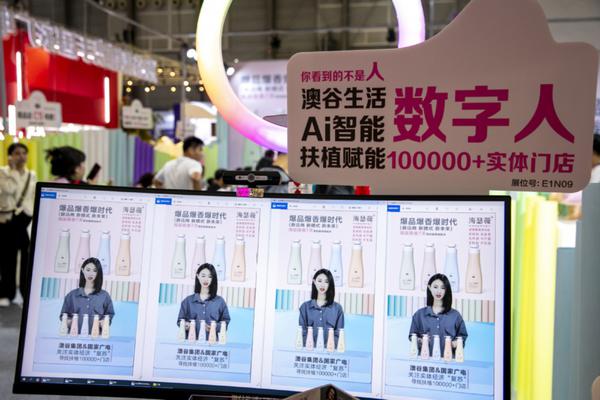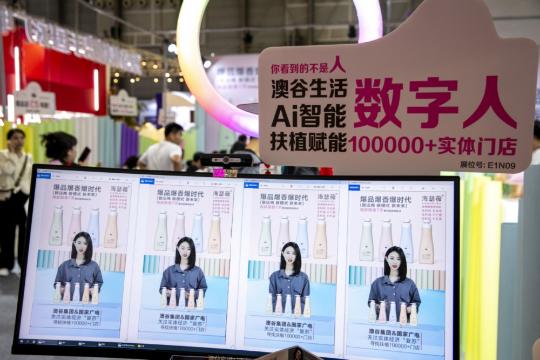AI brings new transformation in the future

A screen shows how AI-powered digital livestreamers promote products during a beauty industry expo in Shanghai. (Photo/China Daily)
Artificial intelligence will transform intelligent terminals to new heights, empowering the real economy with industry integration, said experts, China Securities Journal reported on Monday.
With the reconstruction of terminal products by AI, these products are projected to iterate in 2025 or 2026, according to Wu Hequan, an academician of Chinese Academy of Engineering, at the 15th China Internet Industry Annual Conference 2025.
"Phones, computers and such products will be redefined by AI," said Wu, adding that AI will be applied to new scenarios in all walks of life.
Smart cabins will be commonly seen in new energy vehicles with accelerated integration of AI and the automotive industry. Dynamic sensing ability as well as analysis and judgment ability of satellite remote sensing applications are also projected to improve with AI and satellite industry integration. Besides, AI can optimize the supply chain to enhance operation, according to experts.
In terms of new industrialization, AI contributes greatly to the gradual improvement of industries, accelerated infrastructure construction and ever-expanded integration applications, according to Du Guangda, deputy director general of the Science and Technology Department, Ministry of Industry and Information Technology.
As of 2024, the number of AI enterprises exceeded 4,500, with innovations of smart chips, development frameworks and general-purpose large models emerging. China's computing power ranks second place worldwide. Meanwhile, 5G base stations have exceeded 4 million nationwide and 421 national-level smart manufacturing demonstration factories have been cultivated with the integration of AI and the manufacturing industry. In addition, 72 Chinese enterprises have been selected as global "lighthouse factories", the cutting-edge manufacturing sites, accounting for 42 percent of the world's total.
It is necessary to accelerate the construction of AI computing infrastructure, to promote the deep integration of AI with all walks of life, and to empower the development of the real economy, Du added.

